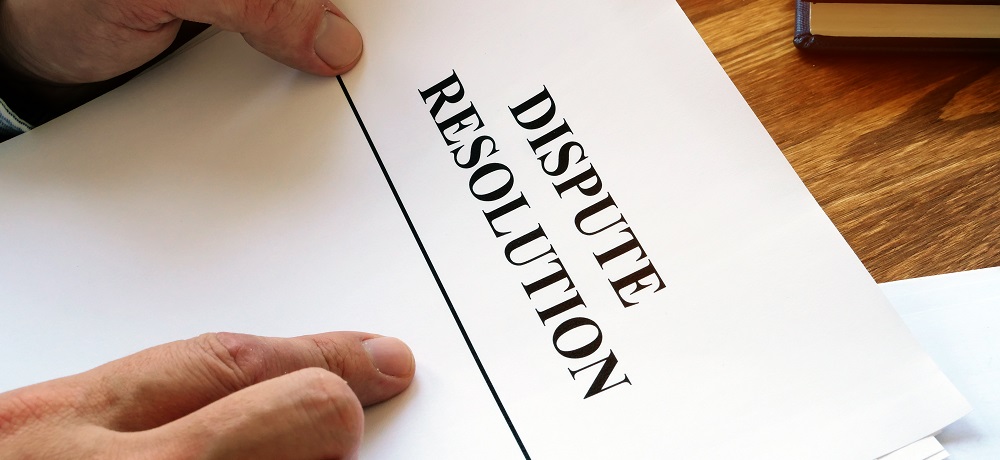Exploring Dispute Resolution in Canada
Conflicts or disputes are commonplace. These things are always present and sometimes inevitable. They are bound to happen anytime, anywhere and to anyone. Let’s face the fact that we deal with problems and disagreements at all times. It can occur at home, in our neighbourhoods or even at work. That’s why dispute resolution Canada is being offered to its citizens.
While not all these disagreements are serious, and we may opt to ignore them without consequences, some need resolution. Some disputes are more serious, and you cannot ignore them. If you do not deal with them, they may become worse. Serious disputes left unresolved for a long time may cost you more time and money in the future.
When it comes to serious disagreements, going to court is one of the common ways of settling. However, doing it can be more costly and time-consuming for both parties. Furthermore, it does not always end up as a satisfying process for the two parties involved.
With that being said, most people are looking more ways outside the courtroom to resolve disputes. For quicker and potentially less costly ways, they opt for dispute resolution methods for settling disagreements and other problems.

In this article, we are going to discuss what dispute resolution is, its methods and advantages. Keep reading to learn more!
What is Dispute Resolution?
Dispute resolution refers to several processes or methods that can be used to resolve a claim, conflict, or disputes. Some people refer to it as appropriate dispute resolution, alternative dispute resolution, or ADR for short.
Dispute resolution processes are good alternatives to court proceedings, federal judges or a jury. When you undergo ADR, you can no longer decide to put your disputes in a trial or other institutions to resolve the case or contract.
In Canada, dispute resolution services can be used to resolve any kind of dispute. This includes family, neighbourhood, business, employment, personal injury, and even environmental disputes.
What are the Methods of Dispute Resolution in Canada?
Since people get involved in many types of disputes, there are also varied ADR methods. With the number of ADR options available, you can choose the best method in dealing with your specific situation.
Generally, there are three commonly used methods of dispute resolution in Canada. These are:
- Negotiation
- Mediation
- Arbitration

Negotiation
Sometimes misunderstanding is inevitable. In this case, the two parties can often discuss the problem through negotiation to reach a mutual agreement. Mostly, when people sort out their issues on their own, they can work out the best solution. Negotiation is vital in arriving at the best solution that meets individual needs and interests.
Generally, solving disputes through negotiation is a part of everyday life. For example, your teenage child asks you for the car keys. After some discussion, you reach a mutual agreement. This agreement involves the conditions for using the car and when to return home. This is an example of negotiation.
You can learn practical negotiation skills and methods. If you prefer to have a professional negotiation, you may hire a lawyer or advocate. You can also choose a counsellor who has the expertise to help you negotiate on your behalf.
Mediation
You can ask a mediator, an unbiased and impartial person, to assist you in your negotiations. The mediator’s duty is to help ease the tension and encourage good discussion between you and the other party.
The mediator can also help both of you arrive at a solution that can result in a “win-win” situation. In this case, both of you are satisfied with the result. Besides, participation in mediation may or may not be voluntary. Either way, your mediator cannot force you to resolve the dispute or accept a particular solution.

Arbitration
Arbitration is the last resort when you can’t resolve a dispute through negotiation or mediation. Both of you can agree to refer the dispute to arbitration.
In arbitration, a neutral person or panel of people hears the issues and facts to arrive at the right decision. More often, arbitrators are people who are experts in a specific area of the law. Mainly, they are best for cases where the decision-maker must be knowledgeable about a particular subject matter.
Typically, both parties are the ones to choose their arbitrator. However, if both parties cannot agree, they can select someone to choose the arbitrator. Conversely, both parties can choose an arbitrator. Then, these two arbitrators will select a third to make a panel of three.
Advantages of Dispute Resolution
Generally, there are many advantages to dispute resolution in Canada.
- It is usually quicker and less costly.
- Both parties involved in the disputes have a chance to tell their sides as they see it.
- It is more flexible and responsive to the specific needs of the parties involved.
- Dispute resolution is more informal than court proceedings.
- The parties’ involvement in the dispute process produces a more significant commitment to the result. As a result, compliance is more likely.
- The process has a confidential nature.
- It is more likely to preserve goodwill or at least not worsen the conflict. It is especially crucial in situations where there is a continuing relationship between the two parties.
- Both parties have more control over the process and results.
Dispute resolution services in Canada come with several advantages. Besides, parties who resolve their issues through dispute resolution are generally more satisfied with the result.

Do I Need a Lawyer to Participate in Dispute Resolution?
Mostly, you do not necessarily need to have a lawyer to participate. However, in some cases, when the court refers the matter to a dispute resolution method, attorneys often participate.
The role of a lawyer in a dispute resolution process varies depending upon the nature of the dispute. It also depends on the type of dispute resolution process. In most dispute resolution processes, attorneys accompany their clients. They participate either as counsellors, mediators or advocates.
If you are looking for an attorney to help with dispute resolution in Canada, visit Lichtblau Law Firm. We offer different ways of resolving any type of dispute. Be it a family, work-related, marriage or other conflicts, we can provide you with successful results. Contact us today to reserve an appointment today!
Latest posts by Lichtblau Law Office (see all)
- Know the Types of Dispute Resolution in Canada - August 10, 2020
- Exploring Dispute Resolution in Canada - August 10, 2020
- Importance of Estate Planning for Married Couples - July 9, 2020

